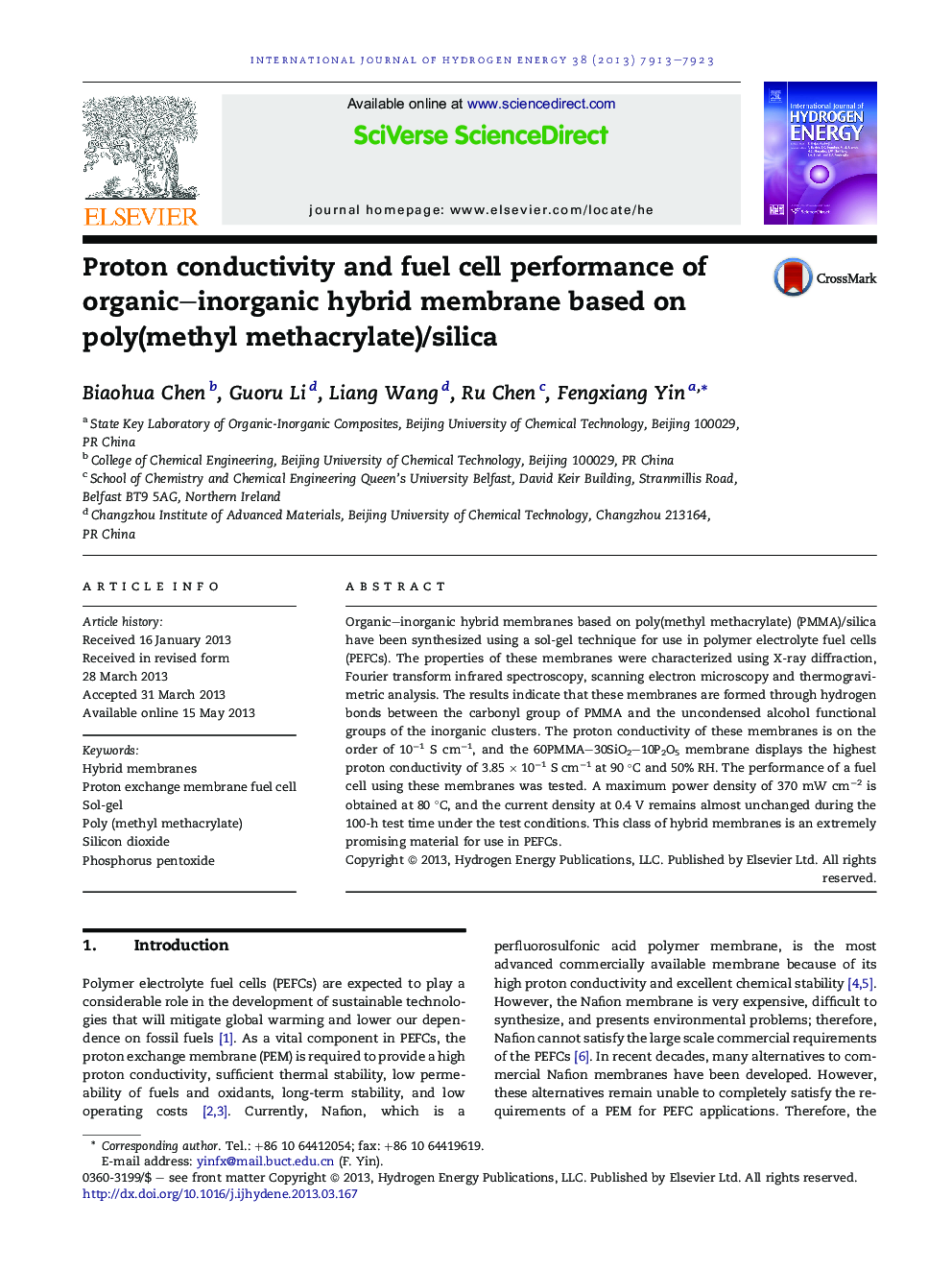| کد مقاله | کد نشریه | سال انتشار | مقاله انگلیسی | نسخه تمام متن |
|---|---|---|---|---|
| 1273647 | 1497526 | 2013 | 11 صفحه PDF | دانلود رایگان |

• The proton conductivity of the hybrid membranes was on the order of 10−1 S cm−1.
• A peak power density of 370 mW cm−2 was obtained in the fuel cell test.
• The current density at 0.4 V kept almost unchanged during the test time of 100 h.
• The enhanced proton conductivity involved the cleavage of the hydrogen bonds.
Organic–inorganic hybrid membranes based on poly(methyl methacrylate) (PMMA)/silica have been synthesized using a sol-gel technique for use in polymer electrolyte fuel cells (PEFCs). The properties of these membranes were characterized using X-ray diffraction, Fourier transform infrared spectroscopy, scanning electron microscopy and thermogravimetric analysis. The results indicate that these membranes are formed through hydrogen bonds between the carbonyl group of PMMA and the uncondensed alcohol functional groups of the inorganic clusters. The proton conductivity of these membranes is on the order of 10−1 S cm−1, and the 60PMMA–30SiO2–10P2O5 membrane displays the highest proton conductivity of 3.85 × 10−1 S cm−1 at 90 °C and 50% RH. The performance of a fuel cell using these membranes was tested. A maximum power density of 370 mW cm−2 is obtained at 80 °C, and the current density at 0.4 V remains almost unchanged during the 100-h test time under the test conditions. This class of hybrid membranes is an extremely promising material for use in PEFCs.
Journal: International Journal of Hydrogen Energy - Volume 38, Issue 19, 27 June 2013, Pages 7913–7923